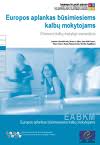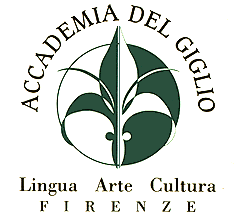Riceviamo segnalazione di questo interessante convegno e volentieri diffondiamo.
 Il seminario si terrà presso l‘Università per Stranieri di Siena (proprio vicino alla stazione dei treni), avrà inizio giovedì 4 febbraio 2010 alle ore 14:00 e si concluderà il giorno seguente alle 13:30. Interverranno le autrici di tre importanti documenti europei per la formazione dei docenti di lingue: Hanna Komorowska (coautrice di EPOSTL), Laura Muresan (coautrice di QualiTraining), Mercedes Bernaus (coautrice di Train Ed Kit).
Il seminario si terrà presso l‘Università per Stranieri di Siena (proprio vicino alla stazione dei treni), avrà inizio giovedì 4 febbraio 2010 alle ore 14:00 e si concluderà il giorno seguente alle 13:30. Interverranno le autrici di tre importanti documenti europei per la formazione dei docenti di lingue: Hanna Komorowska (coautrice di EPOSTL), Laura Muresan (coautrice di QualiTraining), Mercedes Bernaus (coautrice di Train Ed Kit).
Il seminario sarà tenuto in inglese (come si può capire dal titolo) e vedrà la partecipazione di docenti e formatori di docenti per le principali lingue europee,
compreso l’italiano L2. In questa occasione sarà presentato il
volume Formazione, qualità, certificazione per la didattica delle
lingue moderne in Europa (a cura di P. Diadori, Le Monnier, 2010)
con la traduzione italiana di EPOSTL e PROFILE.
Per info e registrazioni (costo 50 Euro): carrea@unistrasi.it **39-0577-240375
Il programma lo trovate di seguito:
Session I – Thursday – February 4th- 2010
What future LANGUAGE TEACHER TRAINERS should KNOW
13.30–14.00 Greetings of the Rector of the Università per Stranieri di Siena, Prof. Massimo Vedovelli
Introduction: Prof. Pierangela Diadori
Presentation of the volume: Diadori P. (cur.), Formazione, qualità certificazione per la didattica delle lingue moderne in Europa / TQAC in FLT. Training, Quality and Certification in Foreign Language Teaching, Firenze, Le Monnier, 2010
14.00-14,30 European policy for multilingualism, Dr. Fiorella PEROTTO, European Commission
14.30–15.45 European documents and their implications for language teacher trainers: PROFILE and EPOSTL (lecture, project-based group work, discussion, production of documents), Prof. Hanna Komorowska
The session will include a presentation of the European Profile of the Language Teacher as a tool which can help to assess the type of initial education the teacher had received and a presentation of the European Portfolio for Student Teachers of Languages as a tool for self-reflection and development supported by the mentor or the teacher educator. Practical ways of approaching teacher development with the use of both documents will be discussed together with techniques of addressing a variety of teaching situations.
A special emphasis will be given to the question of how to help teachers satisfy individual needs of learners in a variety of sociocultural contexts.
15.45–17.00 European documents and their implications for language teacher trainers: QUALITRAINING (lecture, project-based group work, discussion, production of documents), Prof. Laura Muresan
We will start by examining quality-related principles, in order to explore how they can be applied to language education. Building on the QualiTraining-approach, the discussion of key-components – such as quality culture, systems and processes – will be combined with reflective tasks and small group activities. To illustrate the inter-relatedness between quality assurance and teacher training/mentoring, reference will be made to the latest documents developed by EAQUALS – The European Association for Quality Language Services. After analysing relevant case studies from the QualiTraining Guide, the participants will be invited to identify areas of particular interest in their own educational context and to design case studies of their own.
17.30 – 19.00 TrainEd-Training Educators Project – Teaching and training/facilitating (lecture, project -based group work, discussion, production of documents), Prof. Mercè Bernaus
In this fist presentation of TrainEd-Training Educators Project we will discuss about the differences between teaching and training/facilitating. Mercè Bernaus will present the characteristics of a trainer as facilitator. We will discuss in small groups the differences between a lecturer and a facilitator, followed by a group discussion on trainer/facilitator competencies that will be rounded up by a personal self- test on personal competencies for training.
19.00-19.30 Conclusion: Chair: Prof. Pierangela Diadori, Dr. Stefania Semplici
Session II Friday – February 5th- 2010
What future LANGUAGE TEACHER TRAINERS
should be able to DO
9.00-10.30 Training course design and assessment (lecture, project -based group work, discussion, production of documents): Prof. Mercedes Bernaus
This second part of TrainEd-Training Educators Project will be devoted to Principles of Training Design. We will discuss on successful training activities and in small groups we will make an inventory of training activities which may challenge and exceed trainees’ expectations. We will also discuss on ways and purposes of evaluating training events and, finally, in small groups we will plan a training event.
11.00-13.00 Typical methodological errors to avoid, classroom behaviour of successful trainers and multiple roles of class observation (discussion, project-based group work, production of documents): Prof. Laura Muresan, Prof. Hanna Komorowska
The session will concentrate on most common methodological errors committed by teachers across cultures and educational contexts. We will look at ways of identifying errors hindering the learning process and analyze various ways of avoiding them through practical tips for successful teaching in typical and in difficult situations.
A video exemplification of an English class will offer us the opportunity of being observers, reflective teachers, trainers and mentors, maybe remembering also the times when we ourselves were learners of a new language. We will be involved in a holistic experience of sharing and peer-learning, while becoming aware of the multiple roles and benefits of class observation.
A variety of forms of work will be used, i.e. lecture, discussion, pair work and group work.
13.00-13.30 Conclusion: Chair: Prof. Pierangela Diadori, Dr. Stefania Semplici







Commenti recenti